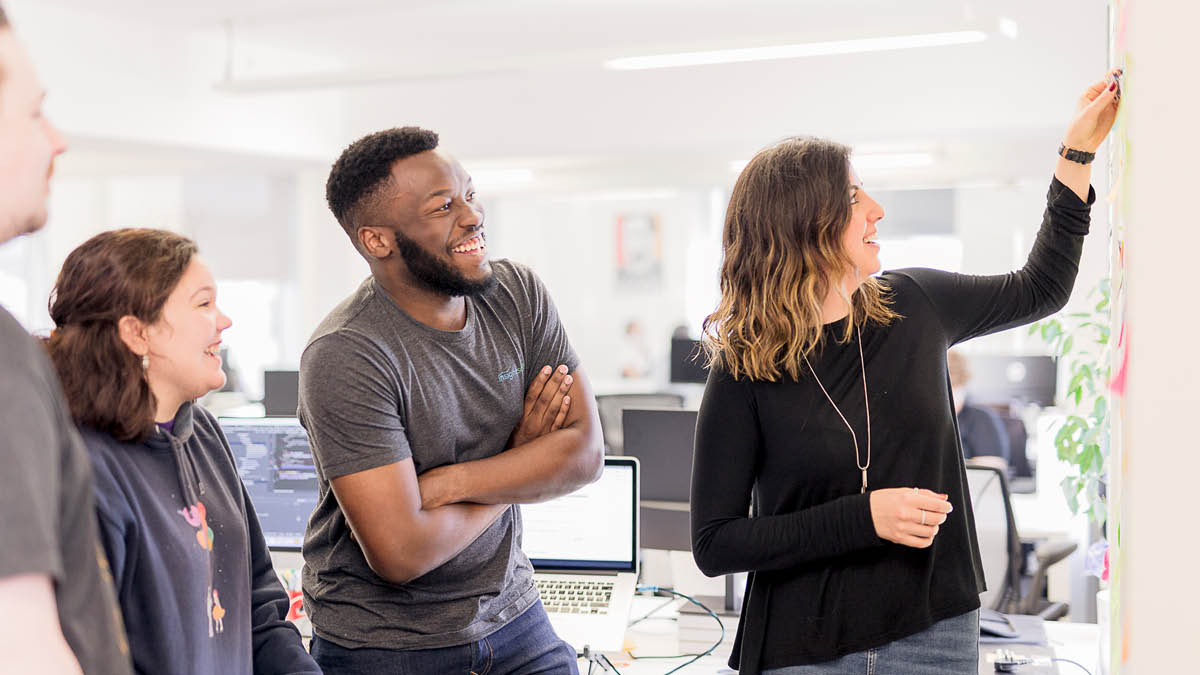
Digital transformation holds the promise of greater business agility. However, as more companies invest, it appears that the rewards are falling short. Why is this the case?
There are great examples around us of digital native success stories demonstrating agility, but what we see elsewhere can be hard to replicate in our own organisations. From seeing to doing – therein lies the challenge. AND Digital, a company that works with organisations to accelerate their digital delivery, believes it has identified a unique set of attributes that organisations need to adopt to make meaningful progress towards agility and set about putting them to work, with impressive results. AND began its journey in 2014 with 33 ‘ANDIs’ and two clients. By the end of 2021, the company’s portfolio stood at 1,200 ‘ANDIs’ across seven UK cities as well as Amsterdam.
“When we set up AND Digital in 2014, we set about understanding and distilling the essence of what determines success in our increasingly fast-paced, technology-driven world. Since then, we have purposefully implemented the patterns, ways of operating, capabilities and mindset to build and scale,” explains Paramjit Uppal, founder of AND Digital.
When we build teams, we build them with our clients. It is a shared commitment to a shared problem
Uppal continues: “We refer to this as the Essence of the AND. Increasingly, we are living in an ‘and’ not ‘or’ world. ‘Or’ is no longer a viable strategy for organisations. We need to be good, for example, at both experience design and engineering. At the core of this essence is our people. We work very hard to build and nurture a mindset and capabilities to enable high performance. This investment has delivered great speed and agility for us.”
AND now applies this knowledge and strategic approach to clients, working with them to accelerate their immediate digital needs and supporting them in building their in-house capabilities. This is all in the face of the well-publicised challenge of the ‘digital skills gap’. “The ‘digital skills gap’ is front and centre of our concerns, but it’s not new and has been a challenge for more than a decade,” Uppal explains.
“Governments and corporates are undertaking various initiatives to try and deal with the issue. But what we see is there isn’t a joined-up approach,” Uppal adds. “Education, industry, and the government are all doing something to help solve the digital skills gap, but in silos. Funding is also disparate. This is a make or break challenge for organisations of all sectors – and for society at large – if we’re to secure growth for the future.
“Our approach, therefore, is all about collaboration. When we build teams, we build them with our clients. It is a shared commitment to a shared problem. AND itself is a great exemplar of what can be achieved in the so-called ‘AND world’ when the right patterns, culture and mindsets are harnessed. What’s more, there is no better way for clients to access these for themselves than by working and doing so alongside us.”
Uppal also believes the ‘digital skills gap’ is an often misunderstood topic. “To some commentators, the skills gap is specifically about coding or data skills, or STEM. To others, it is purely an expression of not having enough people to complete tasks in the short term. For us, it is about having that essential skill mix, mindset, and the right practices in place – these having made AND itself successful. It’s these vital attributes that we actively encourage and support our clients to adopt.”
However people understand it, the gap is broadly accepted to be widening. In 2021 alone, AND Digital claims that it upskilled more than 10,000 people with the requisite skills and knowledge to thrive in an increasingly digital world. “This might feel like a drop in the ocean but we are confident that we have a unique approach to the skills gap,” says Uppal.
Focusing on AND’s corporate mission to help close the digital skills gap, Uppal concludes: “We are calling on businesses and organisations across the UK to join us in tackling this major challenge together. We will be working on ways to scale these approaches and to work with organisations and society to make a real difference.”
For more information, visit and.digital/skills
Promoted by AND Digital

